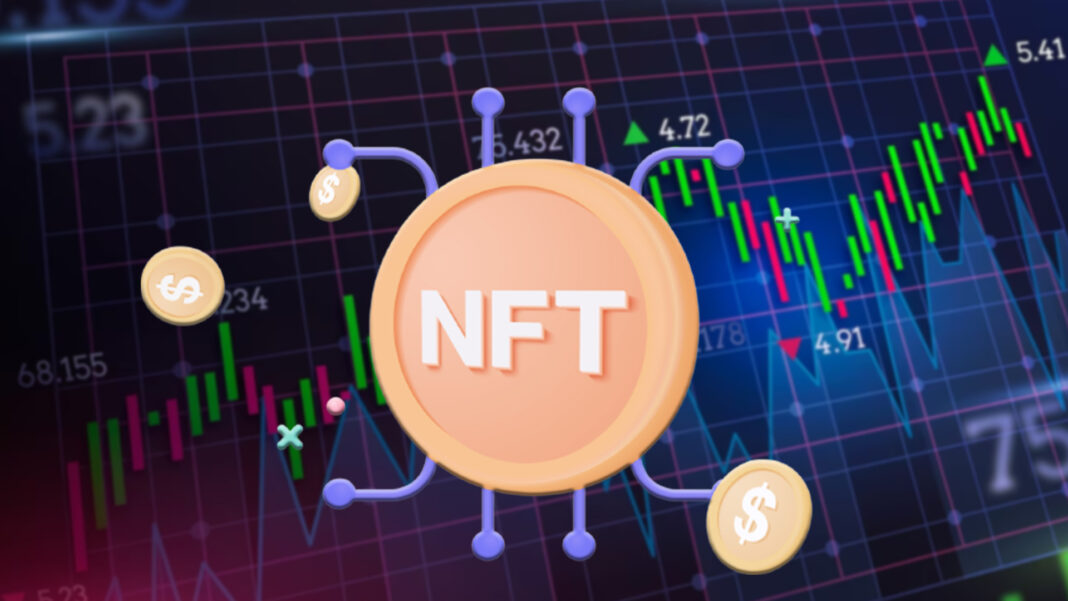- NFT is an asset that is tokenized via blockchain.
- NFT stocks are just like traditional stocks and are involved in the NFT economy.
- There are many advantages to NFT stock trading.
NFT stocks are traded by the SEC-licensed companies and these do not require any professional skills. These work like traditional stocks but have many advantages. There are many notable NFT stock companies, such as COIN, SHOP, etc.
What Is NFT?
NFT stands for Non-Fungible Token. These are assets that are tokenized via the blockchain. These are distinguished from other tokens by their unique identification codes and metadata. These are exchanged and traded for cryptocurrencies, money, or other NFTs. Cryptocurrency is also a form of token but the key difference between NFTs and cryptocurrencies is that cryptocurrencies from the same blockchain are interchangeable but two NFTs from the same blockchain, in spite of being identical, cannot be interchanged.
These can be anything from sports highlights and collectibles like art to computer-generated avatars. The value of NFT is completely dependent on the demand for it. Certain gaming avatars or artwork have sold for millions but lost their value with time. Hence, not every NFT is appreciable in value. NFTs either have a fixed selling price or there is a need to bid for them in an auction.
NFT Stocks
An NFT stock is a stock of companies that are directly involved in the NFT economy. These companies can create and trade NFTs and have a public marketplace or a private auction house where collectors can trade NFTs. NFT stocks can be a good entry point in the world of NFTs. These are traded just like traditional stocks on public stock exchanges. These companies are licensed by the Securities and Exchange Commission (SEC) before issuing NFT-related stocks.
NFT stocks do not require any special trading skills for professional traders and, hence, can be traded just like regular stocks. NFT stocks are issued by companies or organizations that are directly tied to the NFT market. These are unique since they represent fractional ownership in NFT-related ventures. The advantages of investing in NFT stocks are that it is an alternative investment opportunity and a multi-investment tool. Some notable examples of NFT stocks include:
- Coinbase (COIN): It is listed on NASDAQ. It has a market cap of around $20 Billion.
- Nvidia: It is a top manufacturer of GPUs. It is also listed on NASDAQ and has a market cap of over $1 Trillion.
- Shopify (SHOP): It is a notable Canadian e-commerce company founded in 2006. It has a market cap of over $81 Billion.
- Cloudflare (NET): It is a robust network of servers that offers cloud cyber security for websites. It has a market cap of over $21 Billion.
- eBay Inc. (EBAY): It is a top American multinational e-commerce company. It has a market cap of $24 Billion.
- DraftKings Inc. (DKNG): It is a fantasy sports platform. It is listed on NASDAQ and has a market cap of $14 Billion.
- Dolphin Entertainment (DLPN): It is a Public Relations agency listed on NASDAQ. It has a market cap of $26 Million.
- Takung Art (TKAT): It is a Hong Kong-based art company. The company has an online trading platform. It has a market cap of $10 Million.
Conclusion
The concept of NFT stock offers a novel strategy to invest in corporate companies that diversify into the NFT landscape. Extensive research should be conducted before investing in these stocks to avoid fake companies that are not licensed by the SEC.




